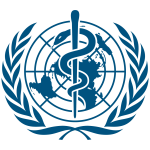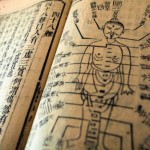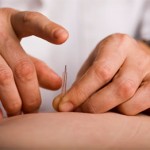Accurate Acupuncture FAQs
Frequently Asked Questions About Acupuncture
Is Acupuncture Really Effective?
 According to the World Health Organization (WHO), acupuncture is effective for treating 28 conditions,including migraines, arthritis, back and neck pain, and asthma; it has even been shown to help smokers kick their nicotine habit. Research conducted at the University of Texas M. D. Anderson Cancer Center found that patients undergoing radiation for head and neck cancer who received twice-weekly acupuncture treatments reported significant relief to the debilitating symptoms of xerostomia (severe dry mouth). Acupuncture also has preventative value, promoting overall wellness by reducing stress and improving your emotional outlook.
According to the World Health Organization (WHO), acupuncture is effective for treating 28 conditions,including migraines, arthritis, back and neck pain, and asthma; it has even been shown to help smokers kick their nicotine habit. Research conducted at the University of Texas M. D. Anderson Cancer Center found that patients undergoing radiation for head and neck cancer who received twice-weekly acupuncture treatments reported significant relief to the debilitating symptoms of xerostomia (severe dry mouth). Acupuncture also has preventative value, promoting overall wellness by reducing stress and improving your emotional outlook.Acupuncture has become an increasingly popular, noninvasive treatment for chronic pain, especially in the lower back. Robert Bonakdar, the director of integrative pain management at the Scripps Center for Integrative Medicine, reports: “The statistics are staggering. One survey of people with low back pain showed that 68 percent rated acupuncture and massage as very helpful. Only one in four of those surveyed said that about seeing their medical doctor.”
How Long Has Acupuncture Been Around?
 Acupuncture is one of mankind’s oldest treatments, dating back 4,000 years in China. After the rise of Western medicine in the 19th and 20th centuries, acupuncture fell out of favor in China. However, rural healers continued to implement acupuncture, keeping its traditions alive. Acupuncture made a comeback in China in the 1950s, and many scientific studies conducted in China reported its effectiveness for certain conditions.
Acupuncture is one of mankind’s oldest treatments, dating back 4,000 years in China. After the rise of Western medicine in the 19th and 20th centuries, acupuncture fell out of favor in China. However, rural healers continued to implement acupuncture, keeping its traditions alive. Acupuncture made a comeback in China in the 1950s, and many scientific studies conducted in China reported its effectiveness for certain conditions.
The treatment was first introduced to the general American public in a 1972 article inThe New York Times. Within 20 years, nearly 15 million Americans had undergone the procedure. In 1997,a National Institutes of Health (NIH) report concluded that acupuncture was a viable treatment for several conditions. It also noted that the side effects from acupuncture were far less severe than those from surgery or prescription drugs and urged insurance companies to provide full coverage on all acupuncture treatments.
How Does Acupuncture Work?
 How exactly acupuncture works depends on who you ask. It has become accepted within the medical community that the human body is a complex, integrated system that is usually best treated using a holistic approach — treating the body as a whole. For example, giving a patient medicine for a stomach ulcer may alleviate the pain symptoms, but it’s not a cure for the cause, which could be stress. Your outlook and emotions, physical self, and spirit all play a part in your health.
How exactly acupuncture works depends on who you ask. It has become accepted within the medical community that the human body is a complex, integrated system that is usually best treated using a holistic approach — treating the body as a whole. For example, giving a patient medicine for a stomach ulcer may alleviate the pain symptoms, but it’s not a cure for the cause, which could be stress. Your outlook and emotions, physical self, and spirit all play a part in your health.
To holistic healers, acupuncture is based on the theory that qi,energy flowing within the human body, can be channeled to create balance and health. An imbalance in your energy flow can cause illness or pain. Practitioners believe qi moves through the body via 12 primary channels called meridians, representingyour major organs and their functions. Through 350 acupuncture points in the body, these meridians and related energy flows may be accessed. When acupuncture needles are inserted into these points in the right combination,the energy flow can be brought back into proper balance.
Western medicine explains acupuncture’s effectiveness through concepts of neuroscience. Acupuncture points typically match up to areas in the body where nerves, muscles, and connective tissue can be stimulated by the needles. Such stimulation increases blood flow and can also trigger your body’s natural painkillers.
Do you reuse needles?
Does Acupuncture hurt?
What does Acupuncture treat?
- Ear, Nose & Throat Disorders:
Toothaches, earaches, sinusitis, rhinitis, laryngitis - Respiratory Disorders:
Colds & flus, bronchitis, asthma, allergies, emphysema - Gastrointestinal Disorders:
Food allergies, nausea, indigestion, diarrhea, constipation, ulcers, colitis - Circulatory Disorders:
Hypertension, high cholesterol, arteriosclerosis, angina pectoris - Urogenital Disorders:
Cystitis, stress incontinence, neurogenic bladder, prostatitis, proststic hypertrophy - Gynecological Disorders:
Menstrual irregularity, endometriosis, PMS, infertility, menopausal syndrome - Musculoskeletal Disorders:
Tennis elbow, frozen shoulder, TMJ, sciatica, low back pain, arthritis, carpal tunnel syndrome, fibromyalgia - Psychoemotional & Neurological Disorders:
Depression, anxiety, insomnia, headache, migraine, trigeminal neuralgia, intercostal neuralgia, post-stroke paralysis, dizziness, tinnitus
